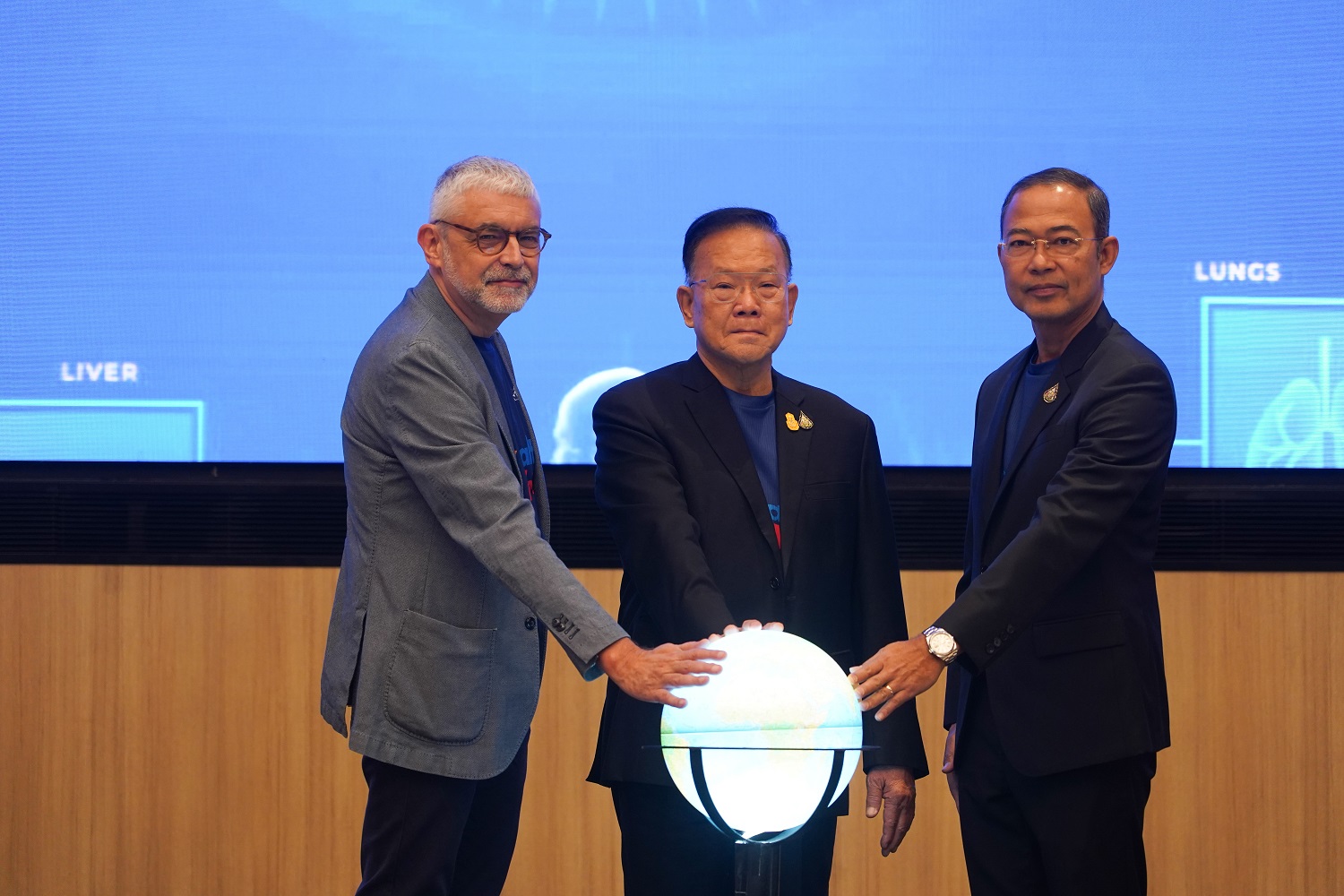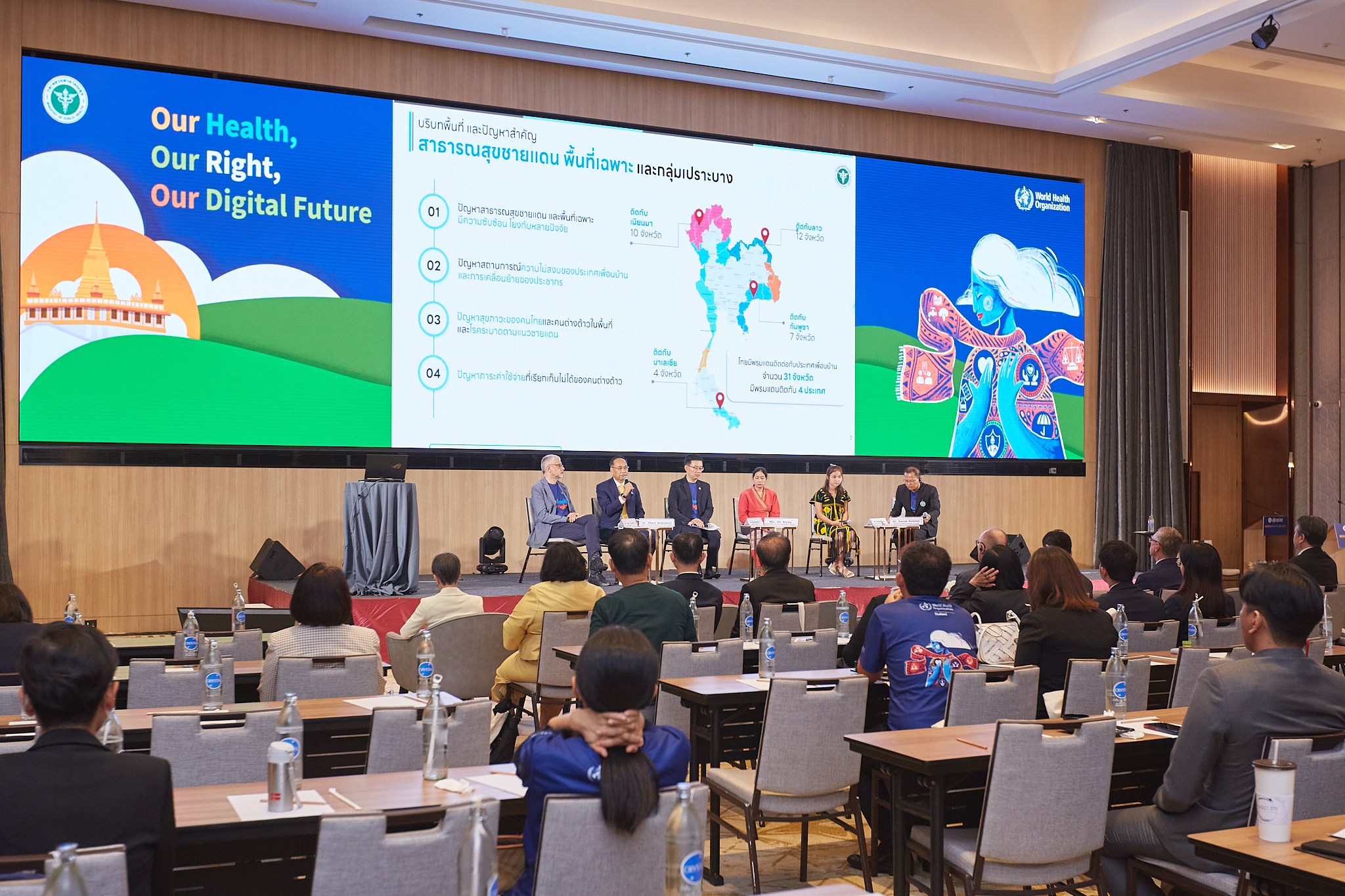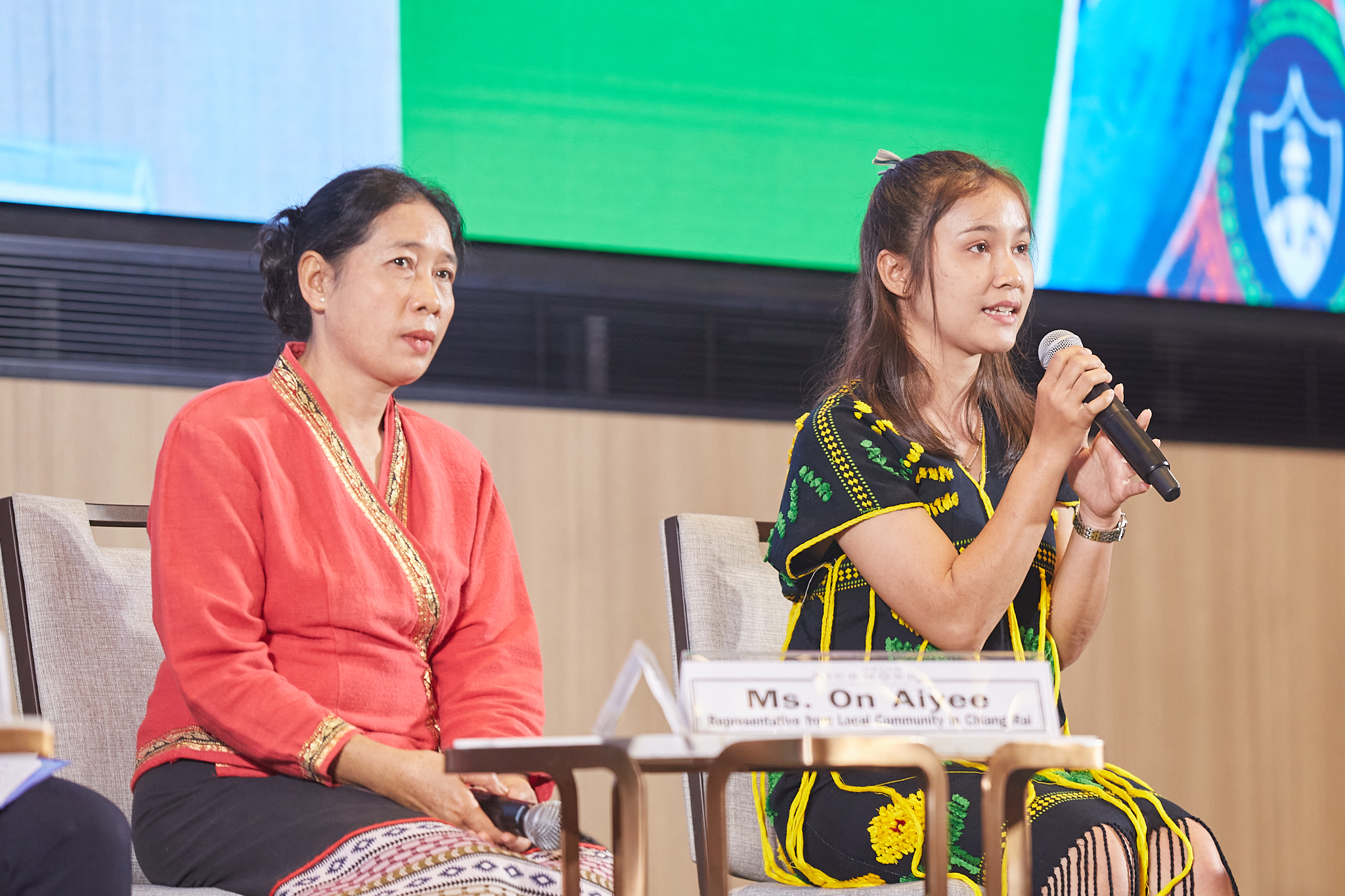The Ministry of Public Health (MoPH) (Thailand), in collaboration with the World Health Organization (WHO), organized this year’s World Health Day on 22 April 2024 in Bangkok, under the theme “Our Health, Our Right, Our Digital Future." The event emphasized that health is not only “complete physical, mental and social wellbeing”, it is also a basic human right.

Dr. Jos Vandelaer, WHO Representative to Thailand, emphasized that "Our health is our right." and reminded participants that everyone should have access to quality, affordable healthcare . Advances in digital health systems can help to bring health care even closer to people.
Deputy Minister of Public Health, Mr Santi Promphat highlighted a significant advancement under Prime Minister Settha Thavisin's leadership—the upgrade of the national healthcare policy to "30 Baht Treat All Disease Anywhere with a Single ID Card." This policy is a significant step towards universal health coverage, which is designed to broaden healthcare access across Thailand, with particular attention to the needs of vulnerable groups and ethnic minorities, ensuring no one is left behind.
Dr. Kitisak Aksornwong, Deputy Permanent Secretary, underscored the enduring partnership between Thailand and WHO, dating back to 1951. This collaboration has been instrumental in achieving major health milestones, such as the establishment of a robust primary healthcare system and the effective management of pandemics. These achievements are a testament to Thailand’s dedication to elevating health standards, not only nationally but also on a global scale.
Despite Thailand's remarkable progress in public health, challenges persist in ensuring equitable healthcare access across all sectors of society. In particular, ethnic minorities and migrant workers face unique health vulnerabilities that often go unaddressed. This disparity highlights a critical gap in healthcare provision, prompting a need for focused discussions on how to effectively bridge these gaps and extend comprehensive health services to every community.

Building on the foundation, the panel discussion titled "Realisation of the Right to Health: from Global to Community," featured influential voices including Dr Direk Sutdan, Director of Division of Health Economics and Health Security, Dr. Jos Vandelaer, WHO Representative to Thailand; Dr. Phisit Sriprasert, Chair of the Border Health Learning Centre; and Dr. Watcharapong Kumla, Chiang Rai Provincial Chief Medical Officer, alongside representatives from ethnic groups, Ms. Oon Eye and Ms. Maliwan Sakor. They explored health rights across various levels, emphasized the Border Health Action Plan, and discussed the development of public health for foreign workers and vulnerable populations in 31 border provinces. The Border Health Action Plan specifically targets health disparities in border provinces through mobile clinics, community health worker training, and culturally sensitive health awareness campaigns.
The conversation shed light on the real-world implications of health policies and the introduction of the Health Insurance for Non-Thai People System (HINT). This initiative, in done in collaboration between the Thai MoPH and the WHO, is transforming healthcare access. HINT utilizes digital technologies to ensure real-time registration and faster service delivery, significantly improving access for stateless individuals and foreigners, aligning with Thailand's broader health goals.

Community representatives Ms. Oon Eye and Ms. Maliwan Sakor shared their transformative experiences with accessible healthcare via HINT. Ms. Oon recounted her journey from self-medication to becoming a community health volunteer, "Before HINT, I had no access to proper, affordable healthcare, and I relied on self-medication which often made things worse. Now, I not only receive the care I need, but also help others in my community understand their health rights and access the services they deserve." Her story illuminated the profound social impact of equitable health access. Similarly, Ms. Maliwan shared her struggles and subsequent life improvements, "Gaining access to healthcare transformed my life and my family's. It's not just about treatment; it's about the dignity and security that comes with knowing you and your loved ones are covered." These narratives emphasized the crucial role of inclusive health policies in enhancing community well-being and fostering social integration.
These stories not only highlighted the direct benefits of the HINT platform but also its role in fostering community empowerment and belonging. The event illustrated collective progress toward a future where health is universally accessible and recognized as an indisputable right, culminating in a powerful call to action: to unite in making health access universally equitable, illustrating that health is not merely an individual aim but a conduit for societal contribution, reinforcing a shared dedication to a healthier, inclusive future.
